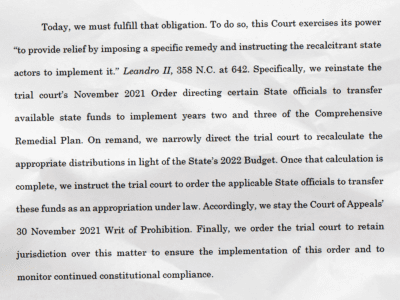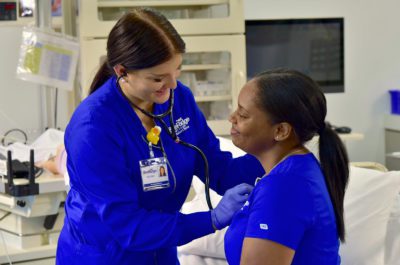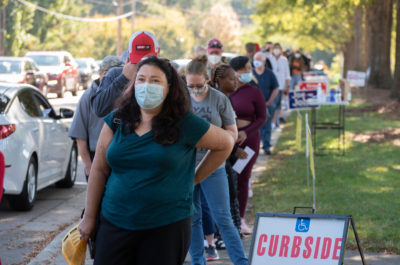
From scattered points along the political and ideological spectrums come calls to expand and enhance the teaching of civics and history in public schools. The outcome of the 2022 elections in North Carolina, as well as across the nation, did nothing to diminish the need.
In the final-sprint period of the mid-term election season, democracy itself emerged as a campaign issue. President Biden addressed the issue in a prepared speech, drawing a distinction between “the people’s right for self-determination and the self-seeking autocrat, between the dreams of a democracy and the appetites of an autocracy.”
“So, today, I appeal to all Americans, regardless of party, to meet this moment of national and generational importance,” said the president, who went on to say, “For democracies are more than a form of government. They’re a way of being, a way of seeing the world — a way that defines who we are, what we believe, why we do what we do.”
Yes, Biden spoke as a Democratic Party leader. Still, it’s no insignificant moment when a president feels impelled to focus on first principles.
Earlier this year, a small, bipartisan group of U.S. senators introduced legislation that would appropriate $1 billion for a “Civics Secures Democracy Fund.” More than half the money would go to state education agencies to support civics and history education programs designed to close achievement gaps. If enacted, the legislation would support nonprofit organizations in developing curricula and universities in conducting teacher preparation.
At the University of North Carolina at Chapel Hill, veteran history professor Lloyd Kramer directs Carolina Public Humanities, which offers workshops and free lesson plans for K-12 teachers. In an interview posted this week, Kramer draws a parallel between an individual’s physical health and a community’s civic health.
“History shows us that if people refuse to accept the legitimacy of elections and public institutions, civic health will collapse,” says Kramer.
“As with one’s physical health,” he says, “a healthy civic life requires truthful information, an ability to listen to others and a willingness to take seriously factual information that others provide. You have to pay attention to facts, not deny them, and recognize difficult truths, even when you don’t want to hear them.”
Foreign Affairs, the bimonthly journal of weighty commentary, is not a regular source for state-local education policy. In its September-October issue, it marked its 100th anniversary with a collection of essays around the theme, “The Age of Uncertainty.” In his contribution, Larry Diamond, a senior fellow at the right-leaning Stanford’s Hoover Institution, argues that America’s credibility in advancing democracy abroad will erode if U.S. citizens fail to revive their commitment to democratic values and practices at home.
“To fight disinformation and authoritarian propaganda, democracy education is crucial,” Diamond writes. “Schools should teach the principles of human rights, free and fair elections, the rule of law, accountability, transparency and good governance … Through innovative techniques of instruction and engagement, young people should be equipped and inspired to participate in civic life.”
In an essay for The Thomas B. Fordham Institute, an education think-tank, Chester E. Finn Jr. asks, “Must we battle over civics education?” Finn, president emeritus of the institute who served in the Reagan administration’s education department, argues that policymakers could find complementary ideas in the competing social studies standards proposed by the Civics Alliance and Educating for American Democracy.
“Some love culture wars and earn their livings and get their grants by fanning flames, picking fights, calling names, donning armor, and lobbing arrows, missiles, and fireball drones into what they want you to believe are enemy camps,” Finn writes. Instead, Finn says, “We could, if we really wanted to, work to unify, to consolidate, to compromise, and to agree on what kids should learn in realms like civics … That’s what the American public appears to think.”
In North Carolina, as elsewhere, public schools have long served as institutions of democratic infrastructure, where most young Americans encounter literature, civics, and history that combine to prepare them for life in a complex, changing society. Still, it is important to recognize that K-12 schools realistically do not carry the entire burden. Americans learn about democracy from parents and peers, from political parties and public leaders, from news reports and commentary.
Just as it requires education beyond high school to propel economic upward mobility, so should democracy studies continue through community colleges, universities, and life-long attention to and participation in public affairs. Instead of prolonged cultural warfare, an agenda for North Carolina public schools would consist of devoting more in-school time to social studies, preparing a strong corps of teachers, and shifting away from memorizing names and dates to exploring democracy in ways that also enhance reading and writing proficiency.
American democracy may have survived intact, even if tattered, in the 2022 elections. But the quest to “form a more perfect union” goes on year by year. The state and nation need schools, colleges, and universities strengthened to educate the rising generation to meet the challenges ahead.
Recommended reading



